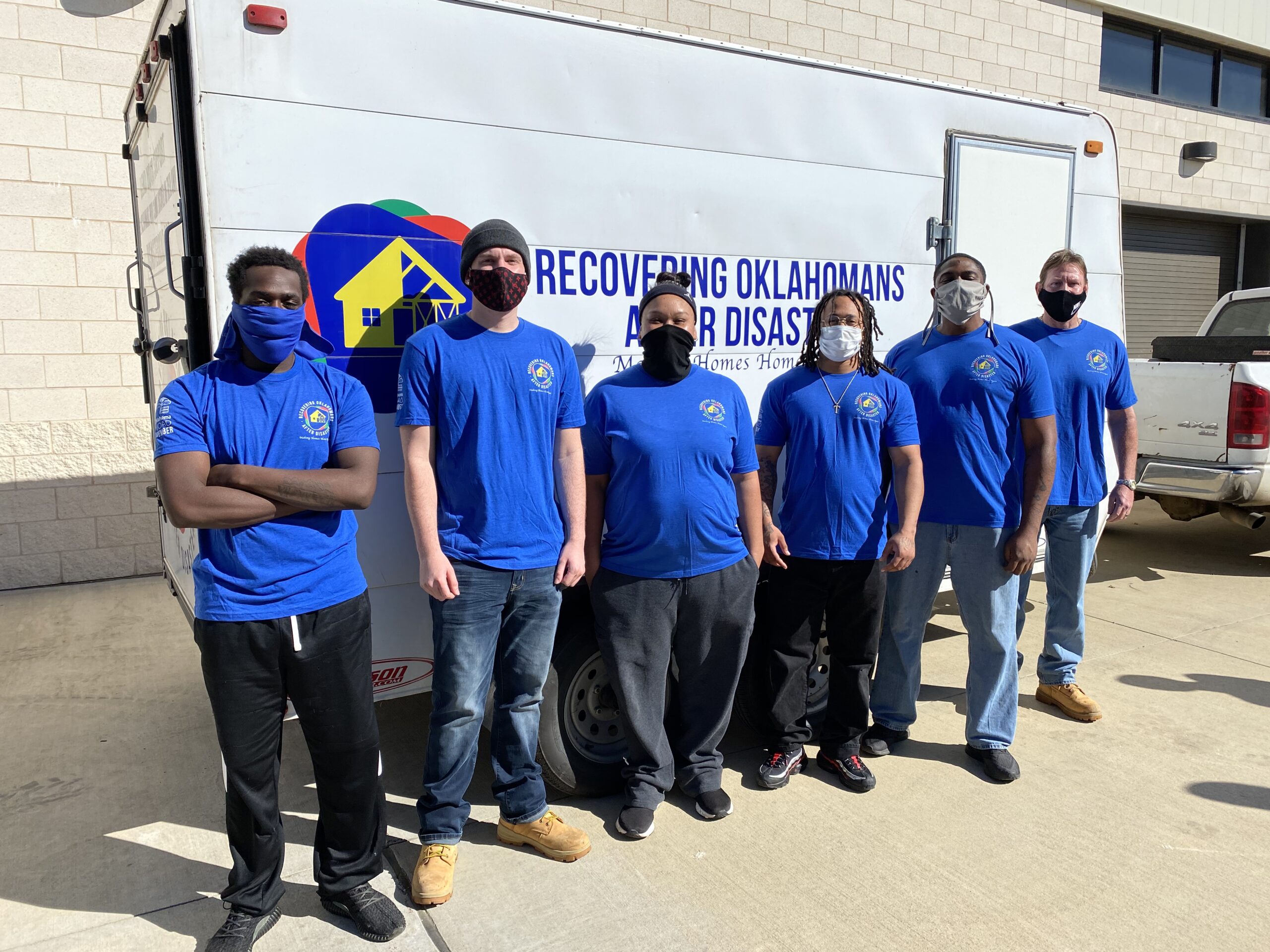Recovering Oklahomans After Disaster (ROAD)

As we work to recover from disasters, we often rely heavily on volunteers. Volunteering in disaster recovery has changed dramatically in the last year, especially related to the rebuild and reconstruction projects planned for the spring and summer of 2020.
Before the COVID-19 pandemic, hundreds of groups were planning to travel to assist homeowners whose repair and rebuild needs exceeded their resources. Starting in March 2020, these teams stayed home, and long-term recovery groups and volunteer coordinating organizations throughout the state found themselves with a significant dilemma.
One such organization was Recovering Oklahomans After Disaster (ROAD), a grantee of the Midwest Early Recovery Fund. Because of the 2019 flooding, thousands of homeowners in Oklahoma already required assistance, and the typical, relied upon mechanisms of service through skilled volunteer teams were unavailable. As a result, the pandemic extended long-term recovery timelines, increased unmet needs related to food and shelter and immediate loss of volunteer teams, and challenged ROAD’s capacity to accomplish its mission and sustain operations. More importantly, it amplified the urgency around their task of Making Homes Home Again for Oklahomans whose homes were damaged in the 2019 floods. Their response to these challenges, in their own words:
Plato said, a need encourages creative efforts to meet that need, or more often stated as Necessity is the Mother of Invention. Our mission is simply to repair houses for disaster survivors who could not recover on their own, but we found ourselves not being able to recover from COVID-19. Out of our own need, fueled some creativity in taking concepts from various other programs and marrying them into what we now call the Vocational Training Apprenticeship Program. Through new partnerships outside our disaster family, we were able to put into place a win-win program that puts us back in the business of Making Homes Home Again, and not just for natural disaster survivors, but for personal disaster survivors as well.
The Vocational Training Apprenticeship Program incorporates WorkForce participants, Career Tech construction certification, and ROADs project management into a recovery team that serves for up to six months. Each apprentice earns an official Career Tech certificate of competency in each of the construction trades of framing, roofing, insulation, drywall, flooring, siding, etc., allowing them to begin a new vocation in a growing industry. Beyond construction skills we work with the apprentices on good employee habits, team building concepts, and personal growth and development. All the while we are making each disaster survivors’ home more resilient, both physical and personal. – Chad Detwiler, ROAD
In these times, we are constantly faced with a choice — do we wait until “normal” comes back? Or do we take some risks and try something new? Can we shift paradigms and continue to honor what came before? The Midwest Early Recovery Fund is proud to support ROAD and their work in Oklahoma in providing critical services and hope to homeowners across the state in both new and traditional ways.
Find out more about ROAD and read their latest newsletter.
Find out more about the Midwest Early Recovery Fund.